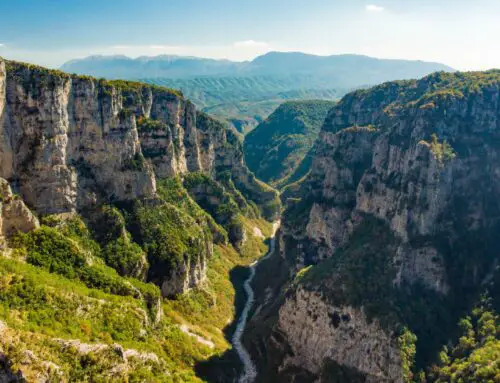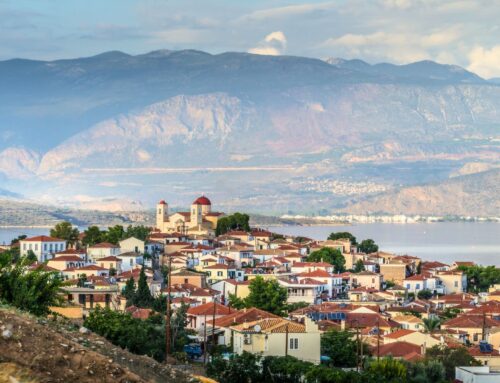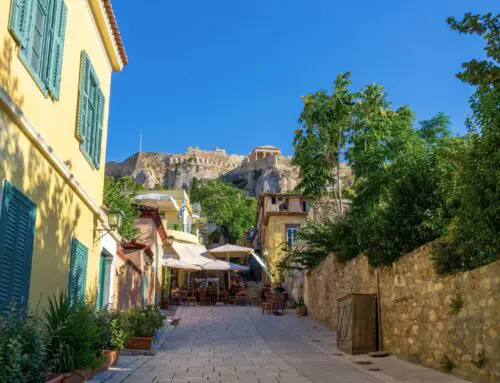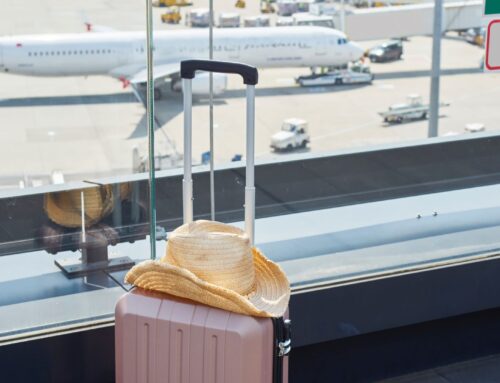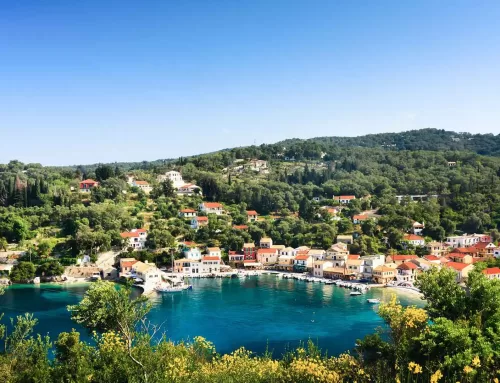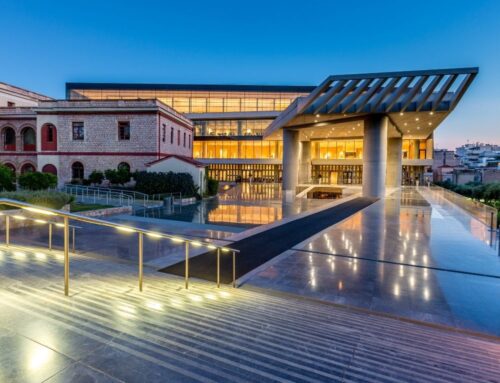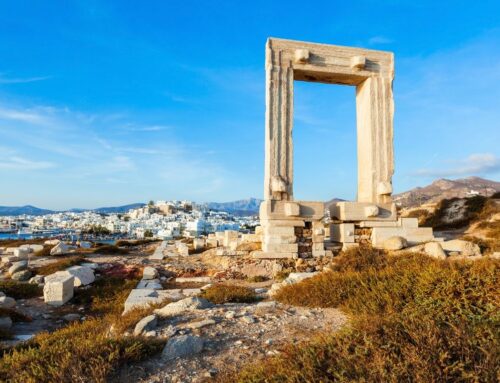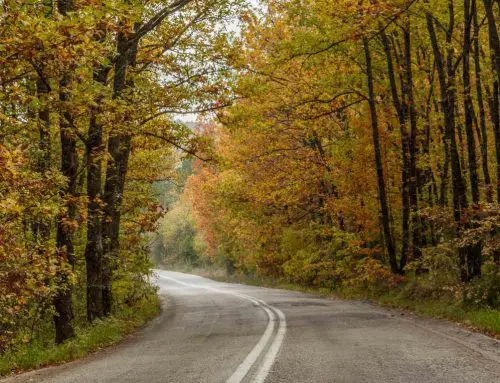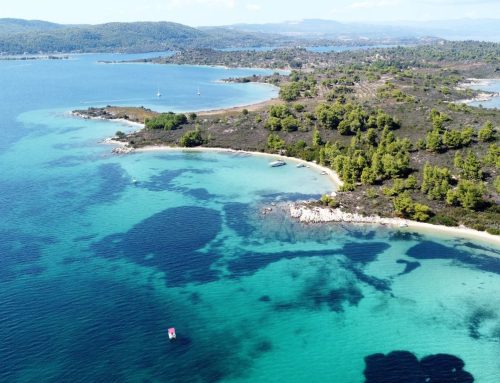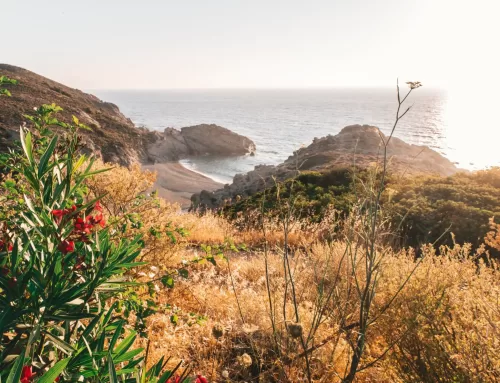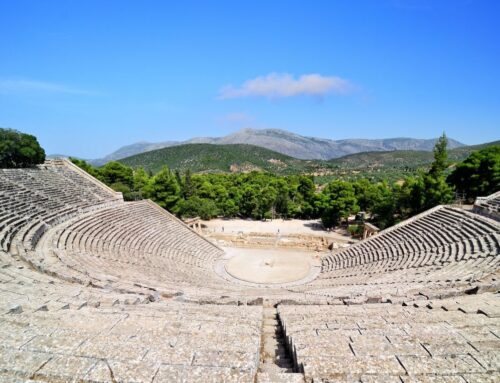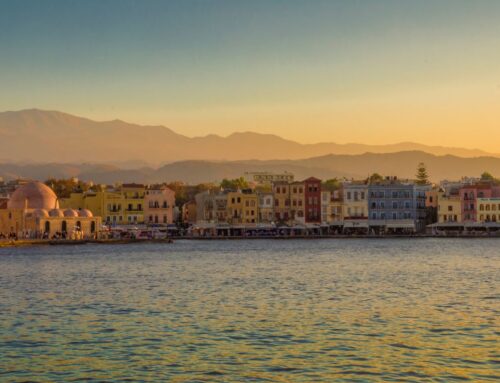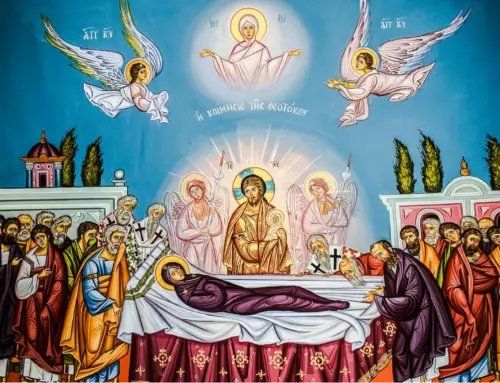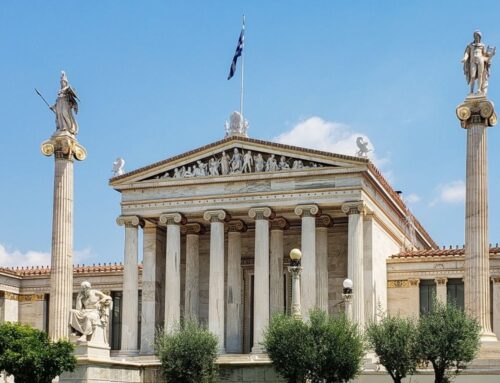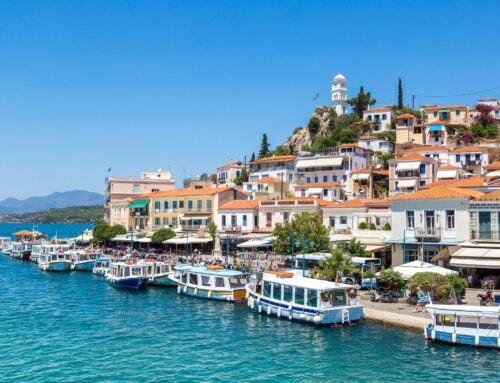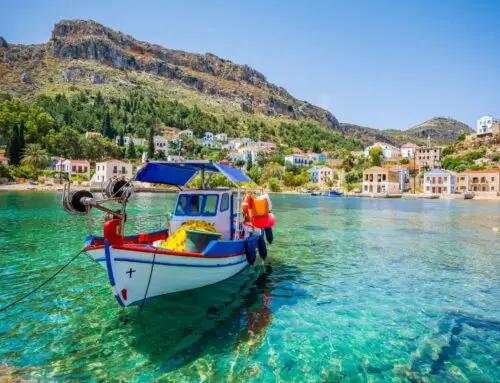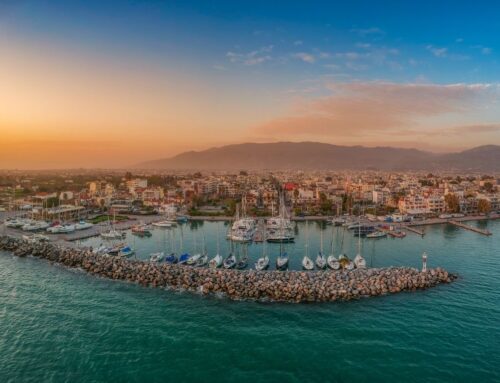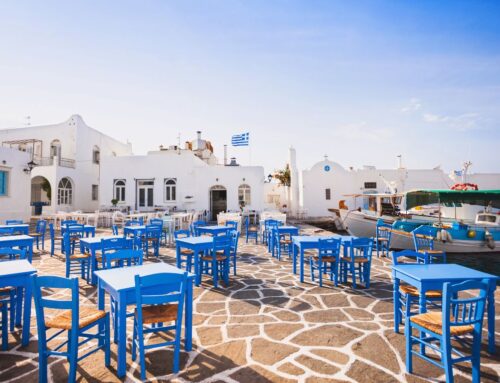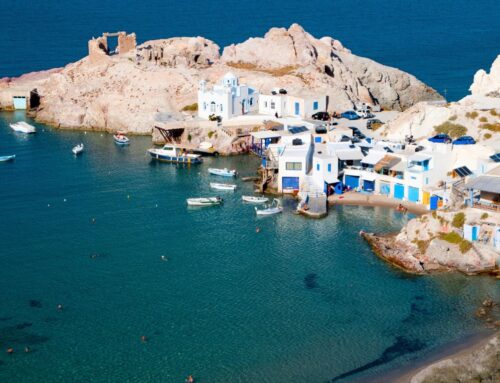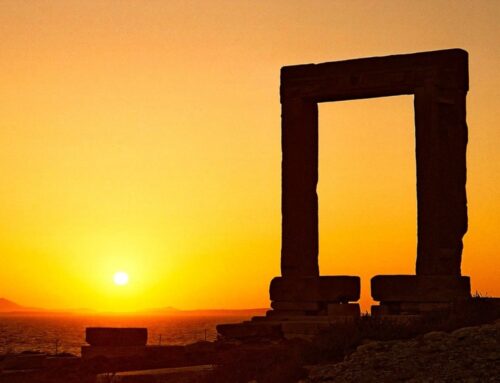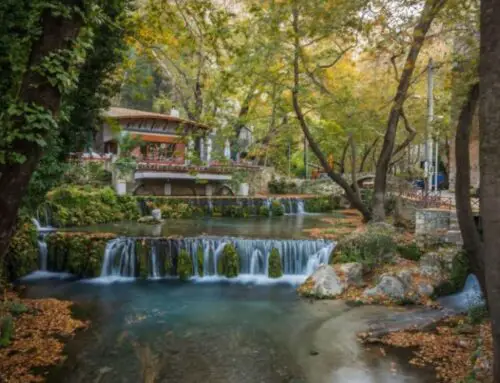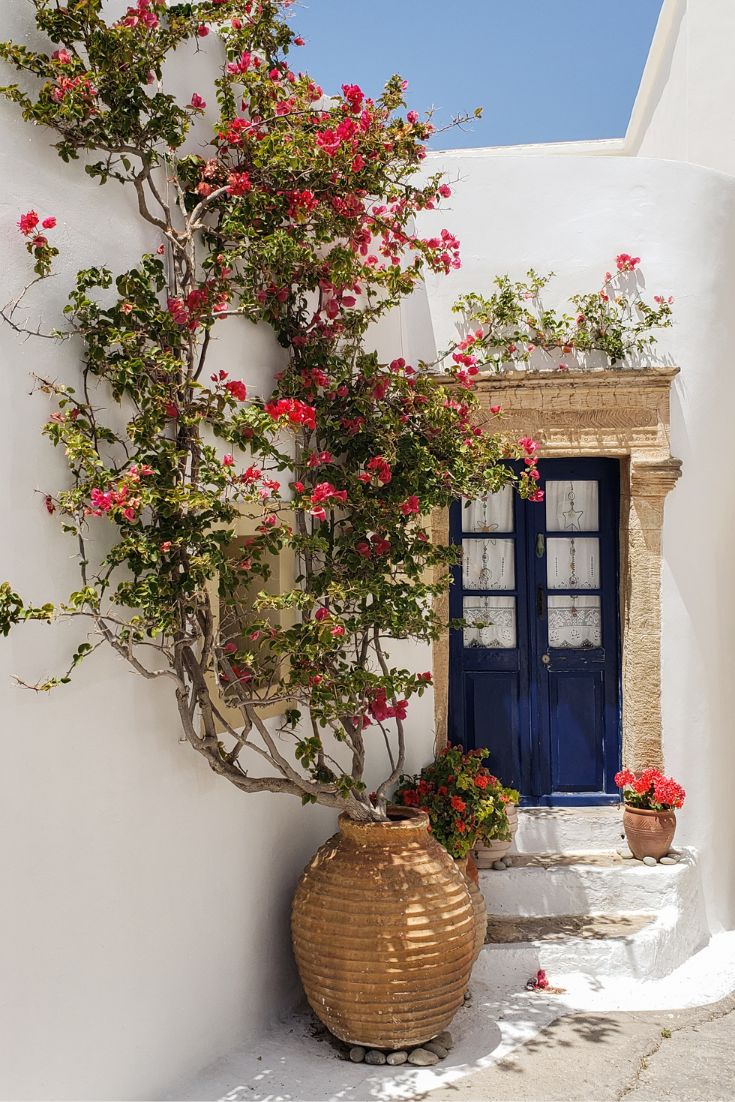Greece In January – All You Need To Know To Visit Greece in January
Greece In January – All You Need To Know To Visit Greece in January
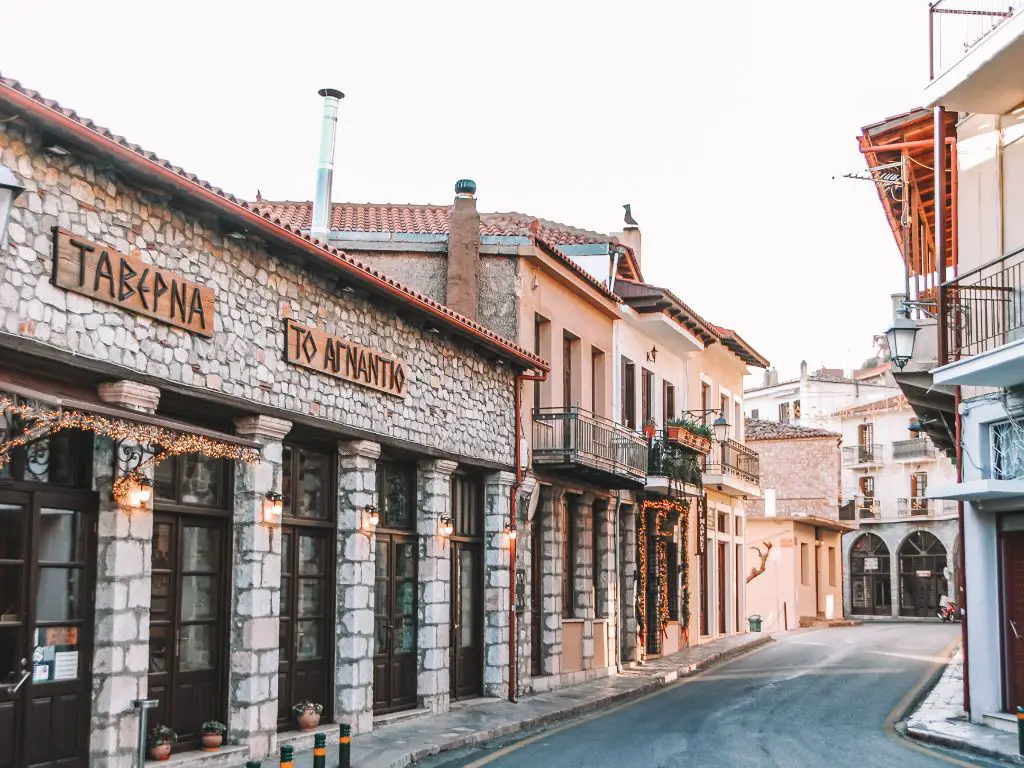
☞ Table of Contents:
What to expect when travelling to Greece in January? January 1st is a time of celebration worldwide. New Year festivities and parties, fireworks, family time and resolutions.
One of the things that people often find surprising about a Greek New Years is that it is also when Santa Claus arrives!
Accounts differ on how Western and Greek traditions have through the years blended to give way to how we currently celebrate Christmas. However, everyone can agree that Christmas did not include the practice of present giving but instead was entirely dedicated to the celebration of the life of Christ.
Following Christmas, Greeks pay tribute to another influential figure, Agios Vasilis or otherwise known as Saint Basil of Caesarea, a father of the Orthodox faith and philanthropist. As children, we sang carols, praising the coming of Saint Basil of Caesarea, a tall man with black eyes and a dark coloured beard.
Beginning of the month and beginning of year
My rosemary who is very tall
and a beginning of a good new year
and church with the holy throne .
The start that brought Christ
the holy and Spiritual
on earth to walk
and lift up our hearts.
Saint Basil comes
and he does not dignify us
from Cesaria
though you are a lady
He holds a picture and paper
a confection in knitted dough
paper and fountain pen
look and look at me and the new young man
The fountain pain wrote
about his fortune
and the paper the paper spoke
oh my saint oh my saint good Basil
Stay to eat stay to drink
stay to tell us your pain
stay stay to sing
and lift up our hearts.
Saint Basil died on the 1st of January in 379 AD and this day, symbolizing the beginning of the New Year, also brings blessings and good luck. Another tradition that remains connected to the life of Saint Basil is the Greek New Years Pie or Vasilopita – Saint Basil’s pie.
This sweet-scented bread, which feels like a brioche and can include a variety of spices and nuts, is served either the night before New Year’s Day, the day after, or right after the clock strikes 12. The secret is on what is hidden inside. A coin wrapped in aluminium foil, positioned as much at random as possible by the person making it. Traditionally, the whole family gathers around the pie decorated with the name of the year to come and begins to cut pieces. The first pieces are dedicated to Christ, Mother Mary, Saint Basil and the house that the cutting takes place in. Then each member present gets their own piece. Whoever finds the coin inside their pie is said to have much luck for the New Year. Many a fight have broken out during the cutting, especially if one possesses inside knowledge on where the coin is located!
So how did this peculiar tradition begin?
The story says that Saint Basil once instructed the people of the village to gather all their valuables in preparation for an attack by debt collectors. After managing to prevent the attack, a bigger task remained. How to equally divide everything that had been gathered amongst the people. Saint Basil then, instructed everyone to bake small pies, in which he placed items. Miraculously everyone received exactly what they had put in, and that is why we bake a pie and place a coin inside nowadays.
To share in the joy of this tradition, head to one of the many bakeries and patisserie shops and ask for the coin bread. Better yet, tag along with some of the Greeks friends you are bound to make!
While in Athens for the month of January, head down to one of the many water spots (lake or sea) on the 6th of January, Epiphany Day (Theophania). This joyous celebration, the revelation of God to Jesus during His baptism, is one of the most sacred Greek Orthodox traditions. The priest blesses the water and then throws a cross into the sea. Young men, waiting patiently, then jump into the freezing waters, racing to be the first to catch the cross. The one to catch it is said to receive many blessings for the year to come.
Today is the lights and the enlightment
The happiness is big and the sanctification
Down the Jordan River
Sits our Lady the Blessed Virgin Mary
Good day!
Good evening!
Good day to you master and matron
She carries an organ, a candle she holds
And pleads with St. John.
St. John lord and Baptist
Baptize me a child of god
I shall ascend to the heavens
To gather roses and incense
Good day!
Good evening!
Good day to you master and matron!
Where to travel in Greece in January?
Athens
The capital is a great winter time destination with fewer crowds and the chance to discover museums and archaeological sites.
Prices are also reduced during the off season so you can take your time exploring the cultural side of Athens without feeling rushed or having to claim your space among other visitors.
Some of the best things to do on holiday in Athens like the museums, the coffee culture and the markets, are perfectably doable all year round and even more enjoyable during the winter. The only thing that might have to wait is heading to the coast for a swim since the water temperature barely exceeds 17 Celsius.
On a sunny day, you can simply walk around on a self-guided walking tour of the most important sites of the city.
There is also a historic coffee shop in the centre, called “Oraia Hellas” or “Beautiful Greece” that is an ideal spot for a warm beverage. The view towards the Acropolis from the upstairs coffee tables is perfect, especially on a sunny day.
Athens might be close to Piraeus port and have beautiful seaside suburbs but it is also only one step away from the mountains. The tallesest of them, Mount Parnitha is a very popular weekend getaway and gets plenty of snow during the winter.
View our FREE master guide for Athens here!
It includes an interactive map!
Arahova
Often dubbed the “Winter Mykonos“, Arahova is a small but action packed town, nestled on the slopes of Mount Parnassus with views towards the Gulf of Corinth.
Arahova is a traditional settlement that has been called to balance two competing faces, its modern and cosmopolitan restaurants and famous nightlife, with its traditional and demure history, as a small village community.
It is widely known that in Arahova you eat well, whether you are after a modern restaurant establishment or a traditional taverna. During winter, the scene is completed with crackling fires, the smell of pine trees, and colourful Christmas decorations adorning the whole village.
Arahova is a popular weekend destination for skiers and snowboarders but also for anybody after some clean mountain air and good food. Expect it to be busy and book ahead if you are heading there during a public holiday or before the 7th of January when schools are still closed.
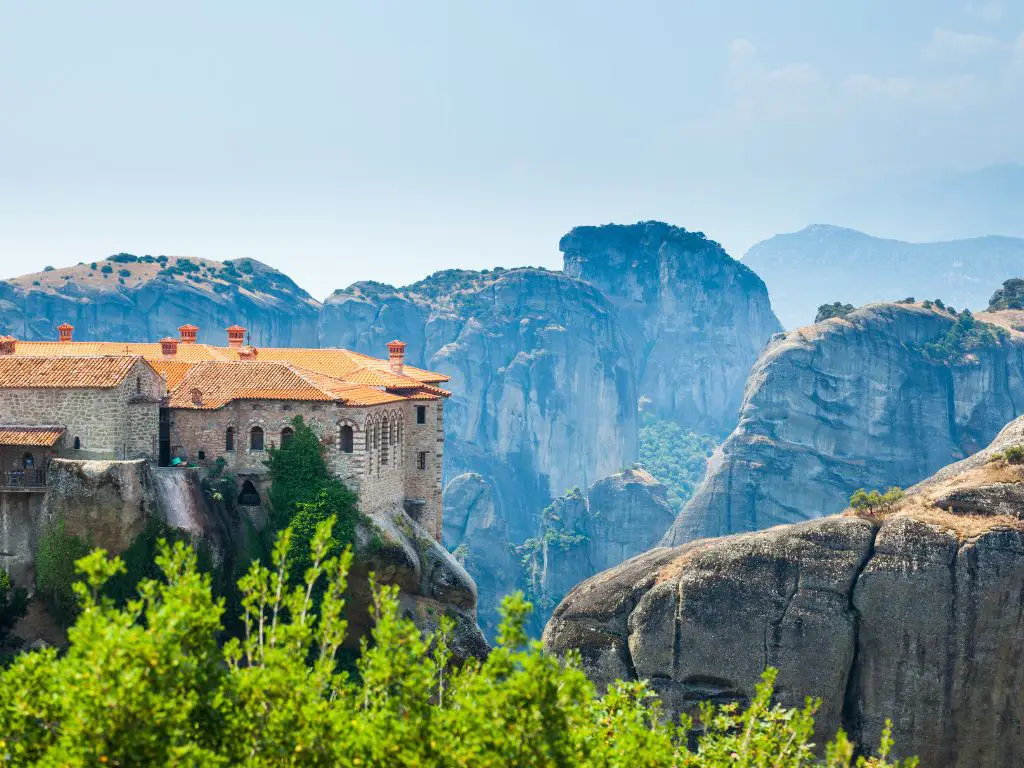

Other destinations for January in Greece
Other places you can visit in Greece during the month of January, are Meteora, the hanging monasteries and famed UNESCO World Heritage Site, the villages of Northern Greece, and spots in Central Greece like the coastal town of Galaxidi.
There is no reason to avoid the islands during the winter period, however, there are some things you need to be prepared for.
Firstly, transportation options for the smaller islands might be limited. Mykonos, Santorini and Rhodes will be the best connected options for flying and ferries.
Secondly, certain routes may be delayed or cancelled altogether due to high winds. This might be a problem if you are on a strict schedule. If you are visiting an island and have an international flight out of the country from Athens, plan to arrive at least a few days in advance in case your ferry or plane gets delayed due to weather changes.
Lastly, the islands of the Cyclades, like Mykonos and Santorini can get quite windy during the winter months. January is not suitable for beach outings or sunbathing. Warm and sunny days are not unheard of but they are the exception and not the rule.
Santorini island has been steadily increasing the number of restaurants and hotels that remain open during the winter months in the last couple of years. Mykonos, on the other hand, will feel empty and quiet, which depends on what you enjoy might be a very good thing!
Crete and Rhodes are the largest islands with a healthy permanent population and as such they offer more options in terms of entertainment, accommodation and dining.
Winter time in the Greek islands is a completely different experience that few get to see.
☞ Related: 20 Destinations for Greece That Are Not On Your Radar
What to expect in Athens in January?
One of the reasons why Athens is an ideal place to visit in January is because the weather is incredibly mild, the crowds are few and the days can be bright and sunny. So grab a camera, a thick jumper and you are free to explore museums and archaeological sights with less than half of the summer crowds.
In addition, there are Christmas lights to see, decorations to photograph, and bakeries and patisserieshops to visit.
Do not miss tasting, kourampiedes and melomakarona, that dominate every store front from December to January and are a favourite of locals to eat and gift.
Kourampiedes are almond biscuits coated in a thick layer of icing sugar that sticks to the roof of your mouth. The sweet coating and the crunchiness of the coarsely chopped nuts inside is phenomenal.
Melomakarona are egg shaped and are made out of a mix of semolina flour, honey and olive oil. Once baked, they are dipped into a syrupy mixture and topped with chopped walnuts or other nuts. Another variation is to coat them in dark chocolate. Either way, they carry wintery scents of clove, orange and cognac to every house they enter.
The city’s love for Christmas and the New Year festivities can be seen at “Noel” a Christmas themed bar and restaurant at the center of Athens (Kolokotroni 59B).
Think fairy lights in every corner, red and white candy cane shaped arches, velvet curtains and an aristocratic atmosphere of Parisian glamour with a Christmas theme. Cocktails are often redesigned and always excellent, cheese platters come with their own freshly baked bread and tables can be hard to come by.
Come early and prepare to enter a magic fairy-tale.
Events & Festivals in Greece in January
1st of January – Celebration all around the world marking the beginning of the New Year. In Greece, this is also often when Santa Claus arrives with gifts. Traditionally, the cake of Saint Basil (the equivalent of Santa Claus) is made and cut on this day.
6th of January – Religious celebration of Epiphany. Also known in the west as Baptism of Jesus or Three Kings Day. This day marks the manifestation.
17th January – Patras Parade – The largest and loudest of the parades in Greece takes place in the city of Patras on the 17th of January. It is the beginning of a whole month of celebrations, signaling the start of the carnival in Greece. There are street parades, parties and festivities every night for several weeks that lead up to Ash Monday and the start of the Lent period.
Cinedoc Festival – This is an annual documentary festival that takes place in Athens, Thessaloniki, Kalamata, Volos, Patras and Amaliada. More cities are added each year. It usually begins in mid autumn and lasts until mid spring. At least two new movies are released per month, both Greek and international. They also organize cultural and educational events to promote the art of film.
Levados Trail – This is a fitness and running event that takes place in Livadeia, a small town in Central Greece. There are two routes available, a 10 km and a 24 km. The starting point is the area of Krya, where the cold waters of the river Herkyna envelop the pine forest, olive groves and cypress trees in the area. The trail offers stunning views of the area around the city and the frozen mountain of Parnassus and mount Helicon.
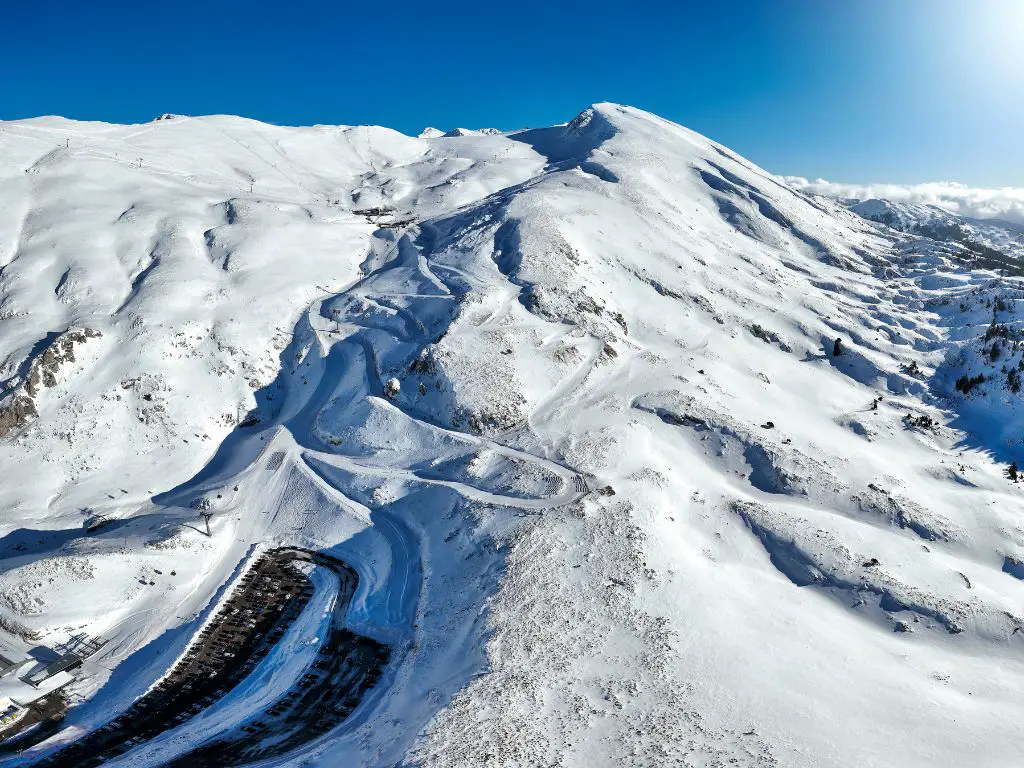

Greece in January: Average Weather Temperatures
Greece in general is blessed with beautiful weather, with hot summers and mild winters. Depending on where you are, the temperatures will hover around 5 °C to 15 °C during the day. (42 – 55 °F) Especially if you are visiting from a northern country, most days will feel like a chilly spring day rather than full on winter. High altitude villages and mountains, espeically in the northern part of the country will get a fair bit of snow. There are also a lot of ski centers that operate throughout the winter months.
Most of the southern islands will get slightly higher temperatures. However, the chance of rain and wind is also higher which is why a rain and wind jacket are necessary.
*Disclaimer: This page includes affiliate links. If you decide to book something through one of them, I might get a little bonus, but it won't cost you anything extra.*

